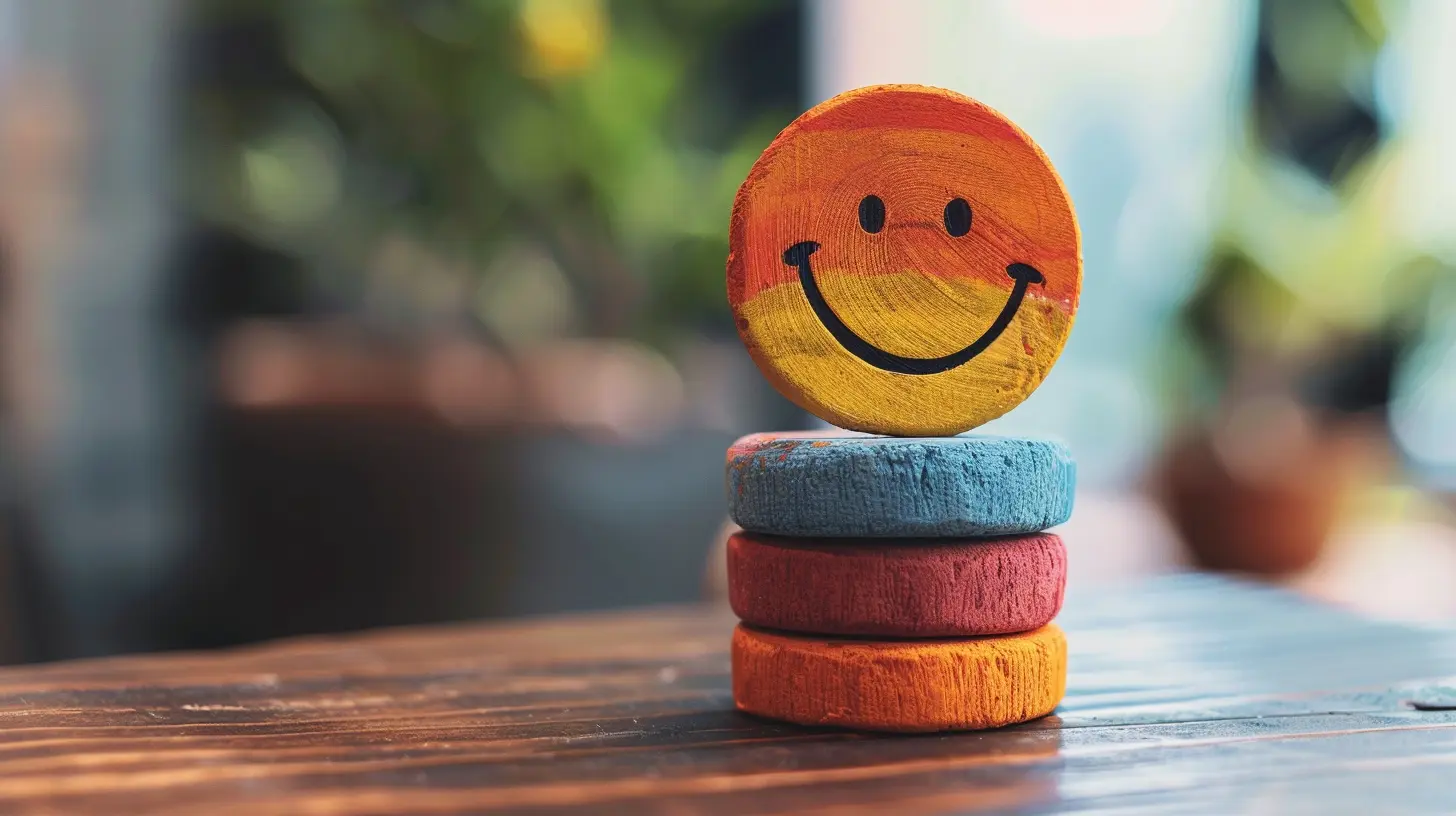25 April 2025
Emotional management isn't just about keeping your cool when things go south—it's about creating a foundation that keeps your mental well-being in check, no matter what life throws at you. And if you're constantly feeling overwhelmed, anxious, or just emotionally all over the place, chances are, you might need a solid routine to handle your emotions better.
The good news? You can absolutely build a routine that helps you stay in control, navigate challenges, and maintain emotional balance. Think of it as building a mental muscle—the more you train it, the stronger it becomes. So, let's dive into a no-nonsense guide to crafting a routine that actually works.

Why Emotional Management Matters
Let's be real—our emotions shape everything. They influence our thoughts, decisions, relationships, and even our physical health. When left unmanaged, emotions can spiral out of control, leading to stress, burnout, and even mental health disorders like anxiety and depression.But when you take charge of your emotions, you gain clarity, confidence, and control over your life. You stop reacting impulsively and start responding intentionally. It’s like having an internal compass that keeps you grounded, no matter the chaos around you.
The secret? Structure. Routine. Intention. Let's break down how to build a routine that keeps your emotional health in check. 
Step 1: Start with Self-Awareness
You can't fix what you don't understand. So, the first step is to become more self-aware. Pay attention to your emotions—how you feel, what triggers certain reactions, and how those emotions manifest physically and mentally.How to Build a Habit of Self-Awareness
- Journaling: Spend five minutes each morning or night writing about your emotions. What triggered them? How did you react? What could you do differently next time?- Mindfulness & Meditation: Taking a few moments to sit in silence and observe your thoughts can help you understand your emotional patterns better.
- Check-ins: Set reminders throughout the day to pause and ask yourself, "How am I feeling right now?"
Once you understand your emotional patterns, you'll be better equipped to build a routine that supports healthier responses. 
Step 2: Prioritize Sleep and Nutrition
You might not think your diet and sleep play a role in emotional management, but trust me, they do—big time.Why Sleep and Nutrition Matter
- Lack of sleep messes with your ability to regulate emotions. Ever noticed how everything feels a hundred times worse after a sleepless night?- Poor nutrition affects brain function, mood stabilization, and energy levels.
- Blood sugar crashes from junk food can make you feel irritable, anxious, or even depressed.
How to Incorporate Healthy Habits in Your Routine
- Aim for 7-9 hours of quality sleep each night. Create a consistent sleep schedule, even on weekends.- Eat food that fuels your body—think whole grains, lean proteins, and healthy fats instead of processed junk.
- Stay hydrated—dehydration leads to fatigue, brain fog, and mood swings.
Want to make a serious impact on your emotional well-being? Fix your sleep and nutrition first. 
Step 3: Set Intentional Morning and Night Routines
Your mornings and nights set the tone for how you feel throughout the day. A chaotic start or end can throw off your emotional balance.The Ideal Morning Routine for Emotional Stability
- Wake up at the same time daily – even on weekends. Consistency is king.- Avoid your phone for the first 30 minutes – bombarding your brain with notifications and stressful content first thing? Not a great idea.
- Practice gratitude – list 3 things you're grateful for to shift your mindset.
- Move your body – whether it's stretching, yoga, or cardio, physical movement helps regulate emotions.
- Set an intention – ask yourself, "How do I want to feel today?" and act accordingly.
The Ideal Night Routine for Emotional Balance
- Unplug from screens an hour before bed – blue light disrupts sleep, making emotional regulation harder.- Reflect on your day – what went well? What could have been better?
- Practice deep breathing – a few slow, deep breaths can relax your nervous system and set you up for restful sleep.
- Go to bed at the same time each night – your body craves consistency.
Step 4: Incorporate Daily Movement
Exercise isn't just for physical health—it’s a game-changer for emotional management. It releases endorphins, reduces stress hormones, and improves overall mood.How to Make Movement a Daily Habit
- You don’t have to hit the gym for hours. A 20-minute walk can boost your mood.- Try yoga or stretching to release built-up tension.
- Dance, bike, swim—do whatever form of movement brings you joy.
Bottom line? Move your body daily, and your emotions will thank you.
Step 5: Create a System for Stress Management
Stress is inevitable, but how you handle it makes all the difference. Instead of letting stress control you, create a system that helps you manage it effectively.Strategies to Incorporate in Your Routine
- Breathing Exercises: Techniques like box breathing (inhale for 4 seconds, hold for 4, exhale for 4) can instantly calm your nervous system.- Healthy Outlets: Journaling, painting, or playing an instrument can provide a creative release for emotions.
- Boundaries: Stop overcommitting. Learn to say no when necessary.
- Decluttering Your Space: A clean space promotes a clear mind.
Step 6: Build Strong Social Connections
Humans are wired for connection. Having a support system improves emotional resilience and helps you process emotions in a healthy way.How to Cultivate Meaningful Relationships
- Schedule weekly check-ins with friends or family.- Don’t just text—call or meet in person for deeper connections.
- Join communities that align with your interests and values.
- Cut out toxic relationships that drain your emotional energy.
A strong support system makes emotional management ten times easier.
Step 7: Practice Self-Compassion and Acceptance
You’re not a robot. Some days will be tough, and that’s okay. Instead of beating yourself up, practice self-compassion.Ways to Be Kinder to Yourself
- Stop negative self-talk—talk to yourself like you would a friend.- Accept that emotions fluctuate—don’t resist them; ride the wave.
- Give yourself permission to rest—burnout does not equal success.
- Celebrate small wins—progress is progress, no matter how small.
Being emotionally strong doesn’t mean being unaffected. It means embracing emotions, managing them wisely, and treating yourself with care.
Final Thoughts
Building a routine for better emotional management isn't about making huge, unrealistic changes overnight. It's about consistently incorporating small habits that add up to a more balanced, resilient you.Start with self-awareness, prioritize sleep and nutrition, develop intentional routines, move daily, manage stress effectively, nurture your relationships, and practice self-kindness.
The result? A healthier, happier, and emotionally stronger version of yourself. And honestly, isn’t that what we all want?


